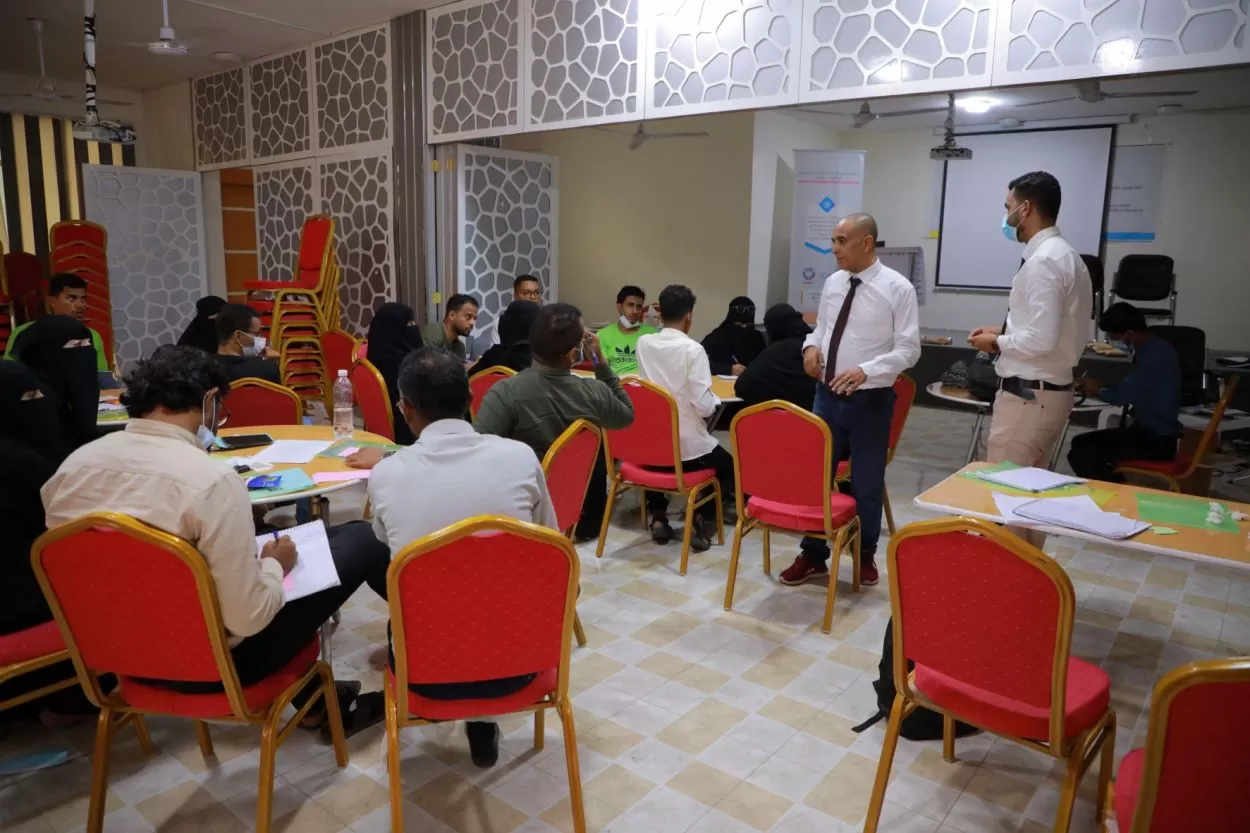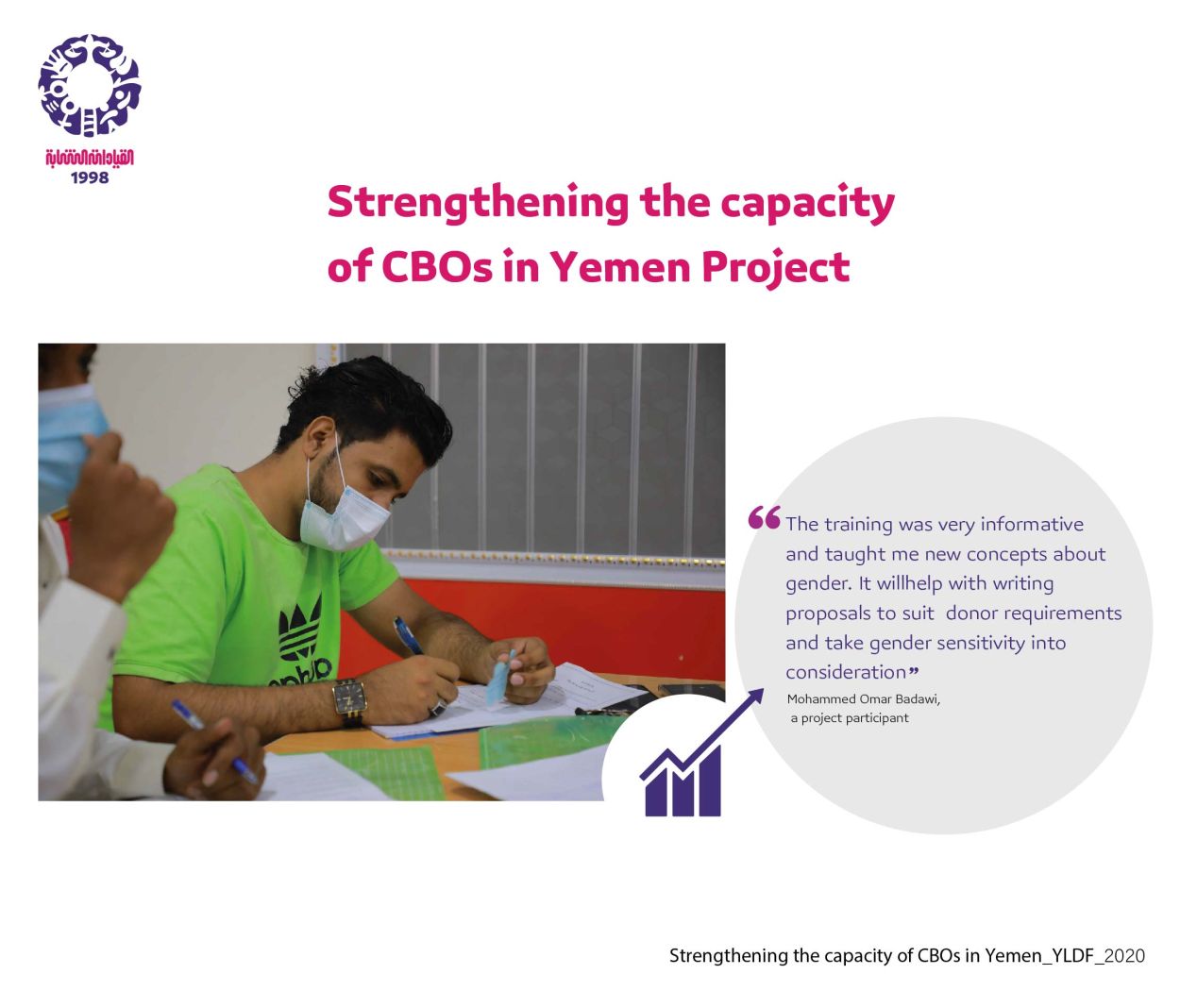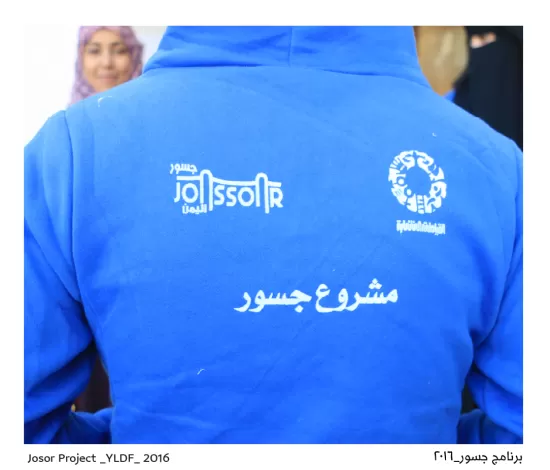Strengthening the capacity of CBOs in Yemen- Al-Mukalla (SCCP)
Project Goal: The project aims to strengthen the capacity of CBOs in Yemen to increase CBOs role in general and specifically in gender and conflict prevention during COVID-19 pandemic.
Project Duration: 8 months.
Targeted Areas: Hadhramaut, Al-Mukla.
Targeted Group: CBOs.
Implemented Organization: Youth Leadership Development Foundation (YLDF).
Partner: International Civil Society Action Network For Women’s right, peace and security (ICAN).
Project Summary:
In many fragile settings, a diverse set of actors like indigenous communities, youth, but especially women, are excluded from decision making and peace dialogues.
Decision-making procedures – the formal structure through which decisions are taken and a final outcome is reached – are a key factor in the design of negotiations, which can negate the benefits of inclusion, in the forms of side-lining women or marginalizing their contributions.
For example, in many National Dialogues, despite widespread consultation with women, the ultimate decision-making power often remains with a small group of powerful actors94. The capacity of all stakeholders, including women, to efficiently represent themselves in dialogues as well as towards political elites is key.
By providing a platform for channeling societal interests, and redefining and renegotiating the existing balance of power, (women’s) civil society as well as local government has a key role to play in advocating for the interests of women. However, suffering from lack of capacities, and lack of support, women as well as civil society find it difficult to function effectively and represent and channel their interests. In addition, opening up governance processes for formerly excluded groups implies repairing power asymmetries, which could evoke resistance from those currently in power. Expanding and strengthening spaces for dialogue and negotiation is therefore critical, in order to aggregate and channel demands and negotiates competing interests between all actors.
A better understanding of gender-based violence and gender-based obstacles to participation among local decision makers could contribute considerably to fight the disconnect.






